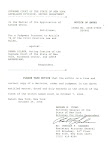
By Catherine Meyer
Last Updated: 9:55
PM BST 03 Aug 2008
That moment, that horrible moment, 14 years ago, when suddenly, from one day to the next, my whole world came crashing down.
I will never forget the feeling of utter helplessness, despair, and disbelief as the realisation dawned that my two sons, aged nine and seven, were not coming back from a holiday with their father in Germany.
He and I were legally separated. It had been agreed that the children should live with me in London and visit their father in the school holidays.
On that terrible day, he broke the agreement, kept the children, and a decade passed before I was able to see them again under anything like normal conditions. In nine years, I saw them for only a few hours.
This was the beginning of a chapter in which, for nearly a decade, I was thrown into the hands of the German legal system, endlessly pedalling the wheels of justice to no avail.
Despite 30 court applications and enormous fees, all my efforts to gain access to my children were in vain.
It is impossible to describe how it feels to be shut out abruptly from your children’s lives. Every night I dreamt of them.
Every morning I woke up with a knot of grief and anxiety in my stomach. Where were they? What was happening to them? Were they frightened? Were they calling out for me?
imagined the worst – and then I started to blame myself. If only I had read the warning signals. If only I hadn’t sent them on holiday. If only I hadn’t been so naïve and trusting. If only, if only … My concentration at work fell to pieces. I was eventually fired from my job as a senior executive in a bank and went on the dole.
I can only hope that Sandra Boss is not suffering as I did. But, of course, however much I can empathise with her, it is above all to her little daughter – the innocent victim, like my own children, of a broken marriage – to whom our prayers should be directed.
I have come across hundreds of cases where a child has been abducted by a vengeful parent across an international frontier. For most children in this situation, it is a nightmare from the very outset. For others, it may start as an exciting adventure. But, sooner or later, it goes sour.
Imagine a child’s turmoil and anxiety when, torn from a familiar environment, it begins to realise it is not going home. Bewilderment turns to fear and fear turns to anger – directed, paradoxically, not at the abducting parent but at the one left behind.
A very common feature of these cases is for the abductor, hell-bent on striking out at the estranged partner, to denigrate the other parent.
The child, sometimes even told that the victim parent is dead or doesn’t want them any more, clings ever closer to the abductor, the only point of security in a world turned upside down.
That is but one reason why an abducted child needs to be rapidly rescued. A profound alienation from the parent left behind can develop at frightening speed.
The psychological damage can be deep and life-long. My situation, for instance, resolved itself when my sons came of age – legally free to do as they pleased.
Our reunion happened a step at a time. It was not easy, neither for them, nor for me. But it happened, and today we talk regularly and see as much of each other as we can. We don’t speak about the past. We concentrate on the future and on rebuilding our relationship together.
A few years ago, PACT (Parents and Abducted Children Together), the charity that I founded and now run, produced a documentary film, Victims of Another War, in which a number of adults describe the impact being abducted as children by one parent and separated forcibly from the other had on their lives.
Their stories are harrowing and tragic. All were scarred in one way or another: unable to trust, to form relationships, to face the world with confidence.
We have to hope that this will not be the fate that befalls little Reigh. Fortunately for her mother, the American authorities are better organised to deal with this kind of situation than most European countries – and that includes Britain.
Ten years ago, when I had just arrived in Washington as wife of the British Ambassador to the United States [Catherine is now married to Sir Christopher Meyer], The Washington Post broke the story of my children.
Immediately, I started receiving emails and letters from American parents who were also the victims of parental child abduction to another country (very often Germany, where there has been a large number of cases of children who have been kept in the country).
I was astonished and comforted to discover that I was not alone in my predicament. Soon a group of these parents and I got together and decided to launch a campaign to bring to the world’s attention the little-known phenomenon of parental child abduction.
We had a lot of success because the American response was swift, practical and generous. This is something I will never forget; and if some of my friends have been surprised at the vigour of my defence of the US in the recent years of fierce criticism, it is because I owe Americans a debt of gratitude that I will never be able fully to repay.
The publicity from the Post article also brought me into contact with someone who to this day is a close partner with PACT, fighting the cause of missing children – Ernie Allen, the head of the National Centre for Missing & Exploited Children.
It was founded in 1984 and coordinates every aspect of what is needed to tackle the problem of children who go missing across America.
It trains the police, develops policy, collects data, is a clearing house of information and advice for parents, law-enforcement agencies, local authorities, schools and the like.
The centre receives more than $40 million from the US government and nearly as much from private contributions. It is an unqualified success story and a model for other countries. It has saved the lives of thousands of children.
Ernie and I rapidly agreed that parental child abduction across frontiers was a growing problem that demanded urgent solutions. So we co-founded, in 1998, the International Centre for Missing & Exploited Children, the international arm of the national centre.
A surge of activity followed: Ernie and I chaired two international conferences in Washington; we secured practical improvements to the Hague Convention on International Child Abduction, which is intended to regulate custody disputes; we had similar success with EU legislation; we persuaded the US Senate to pass resolutions condemning international child abduction; and both Presidents Clinton and Bush raised individual cases, including my own, with the German government.
Such was the workload that I decided, and Ernie agreed, that a dedicated organisation was needed in Britain. This led to the creation in 2000 of PACT, and today, PACT continues its fight against parental child abduction.
Since I returned to London five years ago, we have broadened our activity to include all children who go missing, irrespective of the reason.
We work closely with the police, Home Office, other government agencies and fellow non-governmental organisations. For example, the Missing Kids website (www.missingkids.co.uk), which allows the police to instantly disseminate to other police forces at home and abroad photographs of, and information on, missing children and adults who may be with them.
It is accessible to the public, who frequently provide useful leads to the police. The site has built-in age-progression technology that has led to the rescue of children in America years after their disappearance. Posters of missing children can be downloaded from the site. These have led to the retrieval of several children.
Then there is the Amber Alert System, named after the kidnap and murder of a Texan girl in the mid-1990s. Her death prompted the FBI, police forces and the media to develop US-wide an early warning system when a child goes missing.
Details of the child, and where possible of the kidnapper, are now broadcast on television and radio and flashed up on motorway signs.
By 2008, it is reckoned to have saved the lives of more than 400 children. The McCanns believe that had such a system been in operation in Spain and Portugal, Madeleine could have been saved.
France and Greece have now followed the American example. But here in Britain we have been painfully slow to put in place a similar system.
The Sussex police led the way in 2002, after the disappearance of Milly Dowler, when they launched their own version of Amber, called the Child Rescue Alert. But, despite PACT’s intense lobbying, it has taken until 2008 to persuade the Association of Chief Police Officers to endorse it on a national basis.
Worse still, PACT’s research into the missing-child phenomenon over the past few years has revealed what can only be described as a national scandal.
Quite simply, we do not know with any accuracy how many children go missing each year, and why. The figure probably falls in a range between 70 and 130,000. We have better data on stray dogs!
Such statistics, as do exist, are collected from disparate sources, with different methods of collection over different time scales and using varying definitions of what constitutes a missing child.
Yet, without accurate data, it is impossible to come up with effective policies and properly targeted resources.
This reveals a wider malaise. While it is perfectly clear who in government is responsible for the welfare of pensioners, there is no clarity where children are concerned.
There is no clear chain of responsibility because too many Whitehall departments are involved, as well as poor coordination between the police, Whitehall, local authorities and the voluntary sector.
It is compounded by inadequate coordination within each of these groups. This has lead to the wasteful duplication of services and their uneven delivery.
For almost a decade, PACT has been campaigning for radical reform of this incoherent and ineffective system. By bringing together in a single national resource centre on the American model, representatives of the police, the voluntary sector, local authorities and central government, it would reduce the waste, duplication and lack of coordination that characterise the current situation.
Not everything “made in America” travels well across the Atlantic. But where the welfare of missing and abducted children are concerned, the US is light years ahead of us. We should have the humility and common sense to recognise this. Our children deserve nothing less.
Link- The horrible moment when my world came crashing down - Telegraph
I feel this woman's pain.. every day!Although my children weren't taken to another Country... Apparently.. my estranged husband's political connections made sure I wasn't allowed any where near them!
What's that they say? What comes around goes around? Boy oh boy .. I'm counting on the day they get what they gave!




















No comments:
Post a Comment